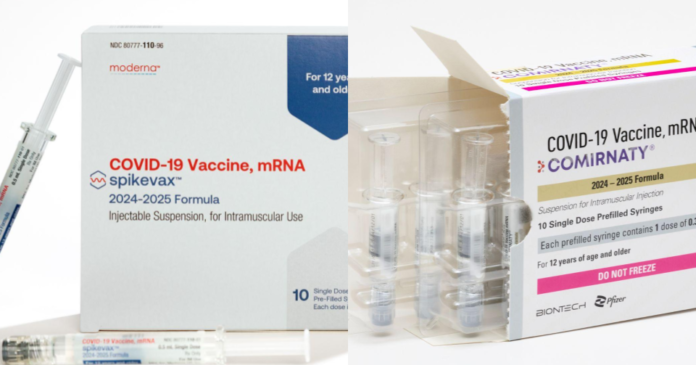In a major regulatory decision that reshapes how COVID-19 vaccinations are communicated to the public, the FDA finalizes COVID vaccines heart risk warning update, officially mandating revised labeling for the Pfizer and Moderna mRNA vaccines. The update spotlights rare but notable risks of myocarditis and pericarditis, particularly in younger male recipients of the latest 2023–2024 vaccine formulations.
This announcement marks the first time these warnings have been applied across a broader population, shifting from earlier, limited age-specific mentions to wide-ranging advisory language applicable to most recipients.
Why This COVID Vaccines Heart Risk Warning Update Matters
The decision to broaden the scope of the heart risk warning stems from new data collected over the last year, including elevated cases of heart inflammation reported in certain age groups. The FDA now requires that both vaccine manufacturers include precise statistics and language describing the potential for rare cases of myocarditis and pericarditis.
Key findings prompting the update include:
- Higher incidence in males aged 16 to 25, especially after the second dose.
- Most cases present within 1 to 7 days post-vaccination.
- Symptoms typically resolve with minimal medical intervention.
- mRNA-based vaccines show a stronger correlation than traditional platforms.
While the FDA emphasizes that these side effects remain very rare, the updated warnings aim to enhance transparency and equip healthcare providers and recipients with clearer expectations.
Summary of the Revised Vaccine Warnings
The FDA’s finalized labeling now includes the following:
- Age- and gender-specific risks.
- A mention of early onset (within one week of vaccination).
- Clinical signs to monitor: chest pain, palpitations, shortness of breath.
- Emphasis on the rarity of the condition and usual recovery outcomes.
These updates are now officially included in vaccine fact sheets provided at the point of care and on pharmaceutical product documentation. The COVID vaccines heart risk warning update is expected to influence medical recommendations, especially for young male patients.
What This Means for Different Groups
With this update, vaccine guidance is becoming more personalized. The risks highlighted are particularly important for:
- Teen boys and men under 30, who represent the highest-risk demographic.
- Parents of adolescent children, who are encouraged to consult pediatricians.
- Clinicians, who now have clearer guidelines for patient screening and follow-up.
| Group | Risk Level | Notes |
|---|---|---|
| Males 16–25 | Elevated | Mostly after 2nd dose, mild symptoms |
| Females < 30 | Very Low | Extremely rare cases reported |
| Adults > 30 (all) | Minimal | Lowest risk, almost negligible |
The FDA insists that while the risk exists, vaccination is still recommended due to the greater threat posed by COVID-19 itself, which has been associated with more severe and prolonged heart inflammation in infected individuals.
The Bigger Picture: Transparency and Trust
The heart risk warning update for COVID-19 vaccines is part of a broader effort to restore and maintain public trust in health institutions. As the world moves toward endemic COVID-19 management, the FDA has made it clear that transparent and honest communication will be central to future vaccine strategies.
This update is not meant to alarm but rather to inform, helping individuals and families make educated choices. The agency also continues to support ongoing research into long-term effects of both COVID-19 and its vaccines, particularly in younger populations.
What You Should Do Now
Here are recommended actions following this update:
- Review the updated vaccine information sheets if you or a loved one is considering an mRNA booster.
- Pay attention to symptoms after vaccination, especially chest discomfort, fast heartbeat, or breathing issues.
- Consult your healthcare provider if you’re in a higher-risk group or have concerns about the vaccine.
- Do not skip vaccination without discussing with a medical professional—risks from COVID-19 remain significant.
The COVID vaccines heart risk warning update empowers the public to remain proactive about health while continuing to benefit from vaccines that have saved millions of lives.
Final Thoughts
The FDA’s finalization of the heart risk warning update reflects a new chapter in how public health adapts to long-term pandemic management. It strikes a balance between safeguarding public confidence and delivering factual, science-based caution. As data evolves, so too will policies—but the core message remains: informed protection is the best protection.
Speak to your doctor today if you’re due for a COVID-19 booster or concerned about the updated guidance. Staying informed is the key to staying healthy.
